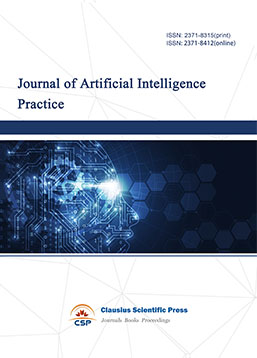A Study on the Translation Strategies of Chinese Culture Loaded Words from the Perspective of Domestication and Foreignization
DOI: 10.23977/acss.2023.070316 | Downloads: 1170 | Views: 8091
Author(s)
Yanfei Yao 1
Affiliation(s)
1 Henan Polytechnic University, Jiaozuo, Henan, 454000, China
Corresponding Author
Yanfei YaoABSTRACT
With the development of global economic integration, the political, economic and cultural exchanges between countries around the world are getting closer and closer. Translation has become one of the key means in cross-cultural communication and is indispensable. Because of different geographical environments and cultural backgrounds, countries all over the world have formed their own distinctive language and culture, among which culture loaded words have also been born. The task of translation is to use the cultural details of one language to transform the cultural details of another language, so the final translation effect is related to the translator's grasp of the two cultures. Based on this, translation theorists propose two translation strategies, namely, domestication and foreignization. Culture loads the command of cultural connotation carried by words, so it is more difficult to fully convey such words than to translate them into ordinary languages. In this regard, this paper studies the translation of culture loaded words, and explores the translation strategies of Chinese culture loaded words from the perspective of domestication and foreignization.
KEYWORDS
Domestication and Foreignization; China; Culture Loaded Words; English TranslationCITE THIS PAPER
Yanfei Yao. A Study on the Translation Strategies of Chinese Culture Loaded Words from the Perspective of Domestication and Foreignization. Advances in Computer, Signals and Systems (2023) Vol. 7: 125-129. DOI: http://dx.doi.org/10.23977/acss.2023.070316.
REFERENCES
[1] Zhao J. Skopostheorie and subtitle translation of culture loaded words from the perspective of domestication and foreignization -- taking China on the Tongue as an example [J]. Silk road vision, 2020, (32):38,40.
[2] Yang X. Study on the English translation of culture loaded words in Liu Sanjie's folk songs from the perspective of cultural dimension of ecological translation [J]. Journal of Hechi University, 2020,40(6):99-103.
[3] Yin C, Kong X. Domestication and foreignization of culture loaded words in the English translation of Liaozhaizhiyi -- taking the translation of Zhais, Meidanli and Meiweiheng as examples [J]. Overseas English, (Part 1)2021,(1):158-159.
[4] Ai Y. The external communication of Chinese culture in the context of "the belt and road initiative" - also on the English translation of Chinese culture loaded words [J]. Overseas English (Part 2), 2019,(7):18-20.
[5] Lu M, Zhang T. The domestication and foreignization scale of English translation of Chinese culture loaded vocabulary -- taking Lin Yutang and Gu Hongming's English translation and comparison as an example [J]. Examination weekly, 2017,(53):93-94.
[6] Zeng Y. Translation of Chinese cultural load words from the perspective of naturalized alienation —— Take the English translation of The Wind as an example [D]. Hunan: Hunan Normal University, 2012.
[7] Zhu Y, Xiao F. On the naturalization and alienation of cultural load words —— Take the subtitle translation of the film Jiang Ziya as an example [J]. English Square (Zhongxun Journal), 2021 (11): 29-32.
[8] Gu R. Translation of cultural load words in the translation of Six Records of Floating Life from the perspective of translator's subjectivity [J]. Frontier Economy and Culture, 2021 (3): 113-115.
| Downloads: | 42926 |
|---|---|
| Visits: | 916082 |
Sponsors, Associates, and Links
-
Power Systems Computation

-
Internet of Things (IoT) and Engineering Applications

-
Computing, Performance and Communication Systems

-
Journal of Artificial Intelligence Practice

-
Journal of Network Computing and Applications

-
Journal of Web Systems and Applications

-
Journal of Electrotechnology, Electrical Engineering and Management

-
Journal of Wireless Sensors and Sensor Networks

-
Journal of Image Processing Theory and Applications

-
Mobile Computing and Networking

-
Vehicle Power and Propulsion

-
Frontiers in Computer Vision and Pattern Recognition

-
Knowledge Discovery and Data Mining Letters

-
Big Data Analysis and Cloud Computing

-
Electrical Insulation and Dielectrics

-
Crypto and Information Security

-
Journal of Neural Information Processing

-
Collaborative and Social Computing

-
International Journal of Network and Communication Technology

-
File and Storage Technologies

-
Frontiers in Genetic and Evolutionary Computation

-
Optical Network Design and Modeling

-
Journal of Virtual Reality and Artificial Intelligence

-
Natural Language Processing and Speech Recognition

-
Journal of High-Voltage

-
Programming Languages and Operating Systems

-
Visual Communications and Image Processing

-
Journal of Systems Analysis and Integration

-
Knowledge Representation and Automated Reasoning

-
Review of Information Display Techniques

-
Data and Knowledge Engineering

-
Journal of Database Systems

-
Journal of Cluster and Grid Computing

-
Cloud and Service-Oriented Computing

-
Journal of Networking, Architecture and Storage

-
Journal of Software Engineering and Metrics

-
Visualization Techniques

-
Journal of Parallel and Distributed Processing

-
Journal of Modeling, Analysis and Simulation

-
Journal of Privacy, Trust and Security

-
Journal of Cognitive Informatics and Cognitive Computing

-
Lecture Notes on Wireless Networks and Communications

-
International Journal of Computer and Communications Security

-
Journal of Multimedia Techniques

-
Automation and Machine Learning

-
Computational Linguistics Letters

-
Journal of Computer Architecture and Design

-
Journal of Ubiquitous and Future Networks


 Download as PDF
Download as PDF